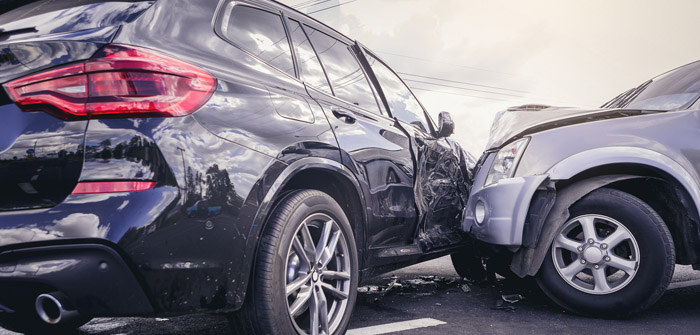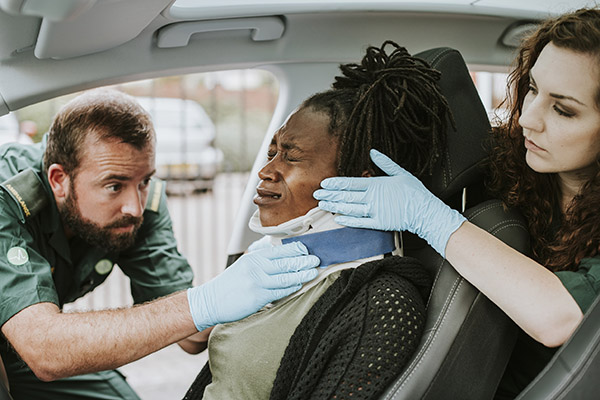Numerous car accidents occur every single day. Some of the incidences result in minor injuries, while the most serious may result in incapacitation and fatalities. Additionally, car accidents affect people’s lives in many ways. For instance, victims lose the ability to work, financial loss, legal suits, and disruptions of their routine.
Accidents can be caused by several reasons, including careless driving and other avoidable factors. Being careful on the road doesn’t always shield you from other road users who are either flouting the law or driving defective vehicles.
Knowing the various causes of accidents allow you to be safer when driving on the road. For one, you can avoid doing one or all of these things so you won’t have to face the negative consequences of being in a car accident.
Below are some of the contributing factors of road accidents you should take note of:
- Careless Driving
Drivers who quickly change lanes, make sudden movements on the road, apply emergency brakes, or suddenly over speed are some of the examples of careless driving that can cause cars to collide or swerve off the road.
As a solution, it’s advisable to keep a safe distance between vehicles to avoid such incidents. Additionally, it’s also good to be always on high-alert on the road to note such behaviors in advance.
If you’re inevitably involved in an accident, talk to Mark Bryant of Louisville, KY. Their law firm will handle the claims case, investigate a careless driver, and put a solid and viable argument in court, allowing you to have just compensation.
- Poor Vehicle Maintenance
A poorly maintained vehicle can break down mid-way, causing other vehicles to break, which leads to multiple crashes. Thus, the condition of a vehicle is an important factor that’ll determine the safety and ability to handle emergencies on the road.
Here are important parts of your vehicle that needs to be properly maintained:
- Tires: A tire enhances grip, stability, and assurance during emergencies. Maintenance of tires requires constant checking of pressure, changing worn-out tires, and buying a quality set of wheels.
Poorly maintained tires can lead to flat wheels, tire burst, or poor maneuvering during wet conditions or emergencies.
- Car Lights: Car lights are used when driving at night, in foggy conditions, and during rain. Brake and indicator lights are also important as it alerts other road users when breaking or possible danger.
Vehicles with poorly maintained vehicle lighting pose a risk to other road users.
- Breaks: The vehicle’s braking system is vital in controlling the vehicle’s speed. That’s why it’s important to regularly change brake pads, check the brake fluid levels, and make sure the anti-lock brake system (ABS) is always working.
- Over Speeding
Over speeding is one of the leading causes of car accidents. High speed takes away the control from drivers, making it difficult to control the vehicle during emergencies. There are also areas with designated speed limits for various reasons; drivers who ignore such speed warnings risk other road users and pedestrians’ lives.
As a driver, it’s safer to maintain a moderate speed, which you can control based on your experience and car handling ability.
- Vehicle Design
The Federal Motor Vehicle Safety Standards (FMVSS) has set out the minimum standards that any vehicles manufacturer must always abide by. This is because road accidents may be caused by faulty vehicles that arise from errors made by the manufacturer.
Some of the vehicle defects resulting from recalls include air-bag issues, electrical systems, and engine defects.
- Poor Weather Condition
Weather conditions can affect one’s visibility on the road. It also reduces the grip on the road, which can be worse for vehicles with worn-out tires.
Below is a demonstration of how various weather conditions causes accidents:
- Rain: Heavy rain causes the surface on the road to be slick. The increased wetness reduces the grip or tire traction, making the car slide. The accompanying humidity and water vapors also reduce visibility.
To minimize possible car accidents, it’s advisable to drive at a low speed and put the fog lights on. In extreme rain, you could take shelter in the nearby mall or town.
- Fog: Driving in foggy conditions is very dangerous and will often result in accidents. As a driver, checking the weather forecast can help you prepare for such eventualities.
The reduced visibility affects the speed perception and the eventual ability to make the right calls.
- Ice: Ice conditions reduce visibility and make the road slippery. To increase traction and grip, road users may opt for studded tires.
Reducing the speed at which you’re driving can help you spot ice blocks on the road that can lead to nasty accidents.
- Distracted Driving
The art of driving requires the utmost concentration and getting rid of all distractions. Behaviors such as texting or calling, eating, or playing with other car passengers can cause serious accidents.
According to the National Highway Traffic and Safety Administration (NHTSA), distracted driving caused 2,841 deaths in 2018; among the fatalities, 1,730 were drivers.
Therefore, it’s advisable to keep away from such distractions as it can cause death.
- Driving Under The Influence Of Drugs
Driving requires a sober and clear mind to make quick decisions and the right judgments on the road. Drugs, such as alcohol, marijuana, prescription pills, meth, and other drugs, interfere with the nervous system, impeding the decision-making process.
Furthermore, drivers are always advised to use alternative means of transport instead of driving after a drinking spree.
- Night Driving
Driving safely at night requires excellent vision and being alert of other road users. A dysfunctional light can also cause an accident because of visibility or obstructed estimation by other road users.
It’s advisable to use moderate speed at night while being extra vigilant.
Conclusion
Car accidents cause fatalities, injuries, trauma, financial loss, and other life-changing injuries. It’s important to take care when on the road and avoid other factors that may cause accidents.
Minimizing accidents on the road requires good character, alerts, and avoiding situations that can potentially cause accidents.






